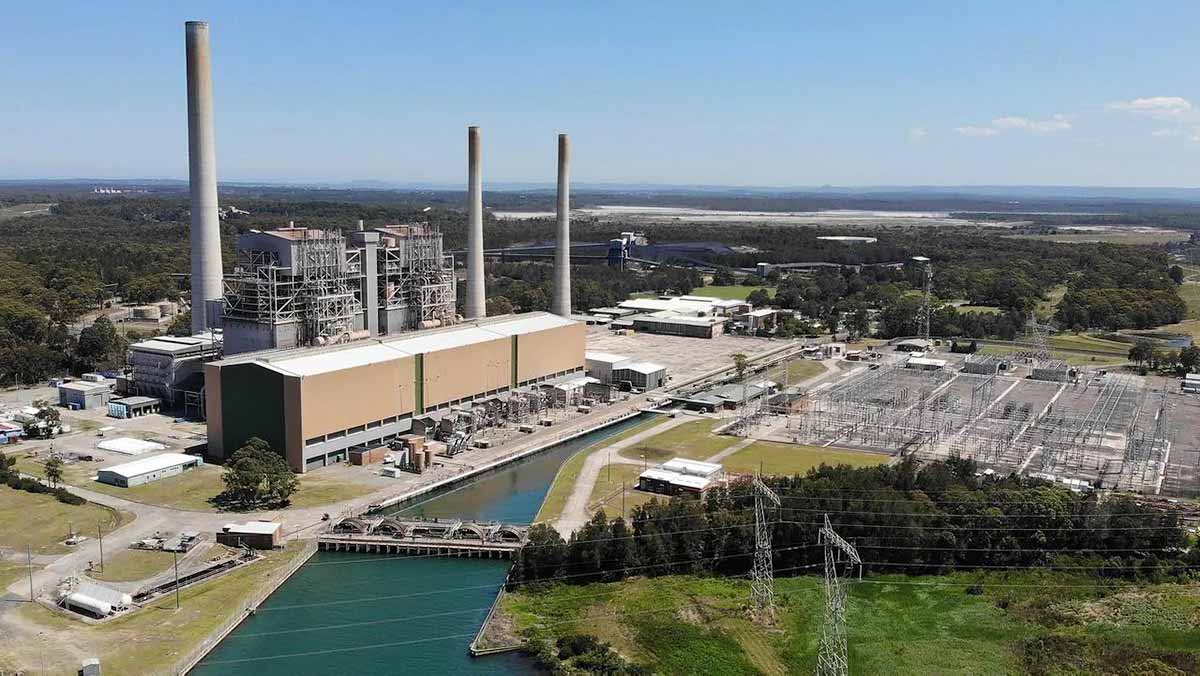A fascinating battle is being played out in the corridors of Australia’s energy institutions as accusations fly and policy makers wrestle with the implications of the effective defunding of one of the last big coal generators in New South Wales.
Delta Electricity, the owner of the 1.32 gigawatt (GW) Vales Point coal fired power station, says it can no longer get financing facilities from banks because of their commitments to lower emissions, and has asked for the rules to be changed to allow it to use cash as credit to meet its market obligations.
It has asked for an expedited ruling, warning that failure to get quick approval may mean it could not operate beyond the end of the year, in the crucial summer period when NSW is already facing a tight supply situation.
See: One of Australia’s oldest coal generators refused bank guarantees, operating status under threat
AGL objected to the fast-tracking of the ruling, saying it had deeper implications that warranted full consideration, and arguing that AEMO has the option of allowing cash in some circumstances. Delta responded angrily that while AEMO “may” do that, it was no guarantee, and it needs certainty.
“Delta contends that AEMO should not be expected to rely on this discretionary power to selectively suspend Market Participants based on their ability to meet credit support requirements,” it wrote.
“Furthermore, such reliance would create significant uncertainty for business such as Delta and undermine the integrity of the existing prudential framework.”
In the end, it is hard to imagine a situation where AEMO and regulatory authorities would force Vales Point off the grid this summer. One of its units was out of action during last week’s supply squeeze, but the loss of its 1.3 GW of capacity could seriously undermine efforts to avoid load shedding this summer.
The response from the coal generator was mostly focused on the implications of a default by a major generator, and cash being clawed back in the event of insolvency. “This should be carefully considered,” Origin wrote.
The more fascinating response came from small retailers, who said they have been the principal victims of the situation up to now. Jitendra Tomar, the founder and managing director of Local Volts, said the situation had given banks an “effective veto” on an organisation’s existence and the country’s energy policy.
“We, as a small and innovative retailer, remain at the mercy of the banks’ policies and procedures around bank guarantees as well,” Tomar wrote in a submission.
“Initially, all banks refused to provide us with the requisite guarantees to get us started – we had the cash, but weren’t big enough to warrant an “enterprise” level service. AEMO’s custom guarantees are only available for the banks’ large customers.
“Additionally, AEMO gives less us than a week to post additional guarantees when we experience strong or unexpected growth, but the bank require multiple weeks to process an application for a guarantee.
” As a growing organisation, why must we be continually threatened with default from AEMO, when we have the ability to post cash?”
This position was echoed by BlueNRG, which said the reliance on bank guarantees exposes retailers
to unnecessary risks due to potential delays or processing issues within financial institutions.
“(These are) issues that can lead to unintended consequences through no fault of the retailer, even when they remain solvent and possess sufficient funds,” it wrote.
Energy Locals was also supportive and backed an expedited ruling.
“Any administrative delay risks the entity being classed as non-compliant by AEMO, despite having the
cash available to hand over,” it wrote.
“This could lead to disruptions across the market if a participant is suspended by AEMO for not having the appropriate form of credit, despite being willing and able to provide the equivalent cash to AEMO. This, in turn, could affect competition, pricing, and consumer choice, potentially leading to higher prices for end users.”
Zen Energy’s Glen Garnaut said the situation was often nearly impossible to manage for smaller retailers.
“The current rules governing credit support were established for an energy market dominated by small group of large established retailers and generators with ready access to traditional banking services.
“While this approach was appropriate at that time it now appears outdated in a market with a diverse range of participants, each of whom have differing business models.
“As the market has continued to grow and evolve, the existing credit support rules increasingly pose a series of challenges which particularly impact smaller and new entrant retailers.
Other, though, are firmly against.
The Clean Energy Investor Group, which represents many large renewable energy and storage developers, says it opposes any changes.
“The current credit support rules are established for sound reasons, and no othermarket participants are currently exempt from these requirements,” it said in its submission.
“Any generator seeking to use cash as credit support must also provide a notice of closure within 3.5 years.” Vales Point, which had been due to close in 2029, recently extended its anticipated extended its plant life to 2033.
That position was supported by the Justice and Equity Centre, which said it is concerned about the implications of passing this rule change are the potential extended use of fossil fuel electricity generators (whether other coal generators or gas peaking power stations) beyond that which would otherwise occur.
“It seeks to continue operating an emissions intensive generator, and mitigation of the finance risks involved. Any concessions made to accommodate such a business should only be made to the minimum extent necessary, in the best interests of energy consumers,” it wrote.








